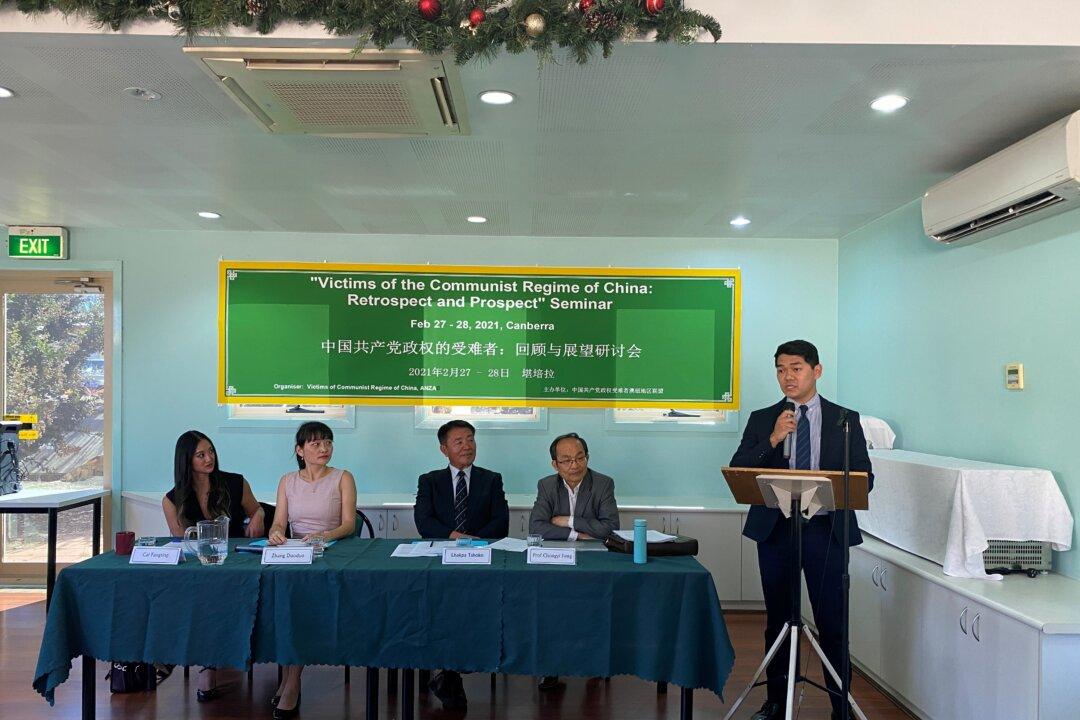Survivors of the Chinese Communist Party (CCP) gathered in Canberra on Feb. 27-28 for the inaugural “Victims of the Communist Regime of China” conference, where attendees called for the rapid adoption of Magnitsky style legislation in Australia to limit human rights abusers from enjoying the spoils of their crimes.
At the conference, the need for Magnitsky legislation was addressed by representatives of the Tibetan Buddhists, Falun Gong, Uyghur Muslims, and Catholic and Christian communities, as well as Hong Kong and Chinese democracy groups.




